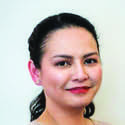By Dr Sheila Lorenzo – Glenorie District Medical Centre

A meta-analysis published in the Lancet entitled Menopausal hormone therapy and 20-year breast cancer mortality showed that the risk of breast cancer was found to have increased the longer women used HRT, and doubling for women who used it for 10 years vs five years. However, there was no increased risk for women who used HRT for less than a year, and those who used it on and off were found to have lower risk than those who used it daily.
However, there are other factors that contribute to the risk of breast cancer.
Studies have shown that intake of 3 standard alcoholic drinks per week increases the risk of developing breast cancer by 15%! The risk further increases by another 10% for each additional standard alcoholic drink women have each day. It’s interesting to note that this increase is higher than that associated with HRT alone. The results of studies linking breast cancer and HRT are based on older formulations of HRT which has dramatically changed.
There is also convincing evidence that being overweight and obese increases the risk not only of breast cancer but also bowel, oesophageal, pancreatic, kidney, and liver cancer. Observational studies on the other hand, have shown that smoking increases the risk of breast cancer development by as high as 14%. Those who began smoking before the age of 17 have an increased risk as high as 24%.
Medications can be viewed as double edged swords in that they have benefits and risks.
Hormone replacement therapy is not an exception with its attendant advantages and disadvantages. It was intended to alleviate menopausal symptoms such as hot flushes and vaginal dryness. The risk associated with breast cancer and HRT has been a longstanding debate that up to now has not been conclusively revolved.
It is imperative that a shared decision making between you and your GP be placed so risks and benefits can be weighed and the appropriate treatment tailored to you.
References:
1. Lauren Vogel (CMAJ. 2019 Sep 30; 191(39): E1088–E1089.
2. Alcohol intake: https://www.breastcancer.org/risk/factors/alcohol ( accessed 18/10/20)
3. Overweight and Obesity: https://www.canceraustralia.gov.au/publications-and-resources/position-statements/lifestylerisk-factors-and-primary-prevention-cancer/lifestyle-risk-factors/overweight-and-obesity (accessed 18/10/2020)
4. Smoking: https://breastcancernow.org/about-us/media/pressreleases/ smoking-–-particularly-if-started-during-adolescence-–-associated-increased-risk-breast-cancer-major-new-study-finds (accessed 18/10/2020)






